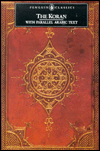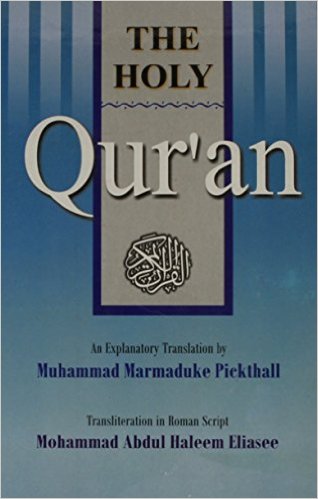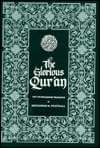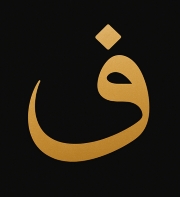A PROFOUND DECLARATION OF AL-QIYAMAH (THE RESURRECTION)
I do call to witness the Resurrection Day; And I do call to witness the self-reproaching Spirit.(Qur'an 75:1-2)
Surah 2:28 speaks not of a single resurrection, but of a soul passing through multiple lives—first lifeless, then alive, then dead again, and once more alive. This cycle, echoed in six other Surahs and clarified by Surah 75:3–4, reveals a divine mechanism of rebirth. The “assembling of bones” is not the reanimation of a corpse, but the reconstitution of consciousness into a new form. Resurrection, in this light, is not a final event but the ongoing unfolding of the soul’s journey toward divine justice and eternal life.



Rebirth Surah 2.28 Al Baqarah (The Heifer)
O How can ye reject the faith in Allah —Seeing that ye were without life,[1] and He gave you life;
Then will He cause you to die, [2]
and will again bring you to life; [3]
and again to Him will ye return.
surah 2.28 Al Baqarah (The Heifer)
Abdullah Yusuf Ali, The Holy Qur'n, Amana Corporation, 1989.
The Unseen Reality: A Quranic Examination of Rebirth and the Fallacy of a Single Life
Introduction
The Quran, as the final revelation to humanity, is a source of profound wisdom and guidance. While mainstream Islamic theology has predominantly upheld the doctrine of a single earthly life followed by a final judgment, a closer examination of the holy text reveals a more nuanced and complex understanding of the soul's journey. This paper will argue that the Quran not only supports the concept of rebirth but also presents it as a more merciful and just framework for understanding the human condition. By analyzing key verses from seven surahs, with a particular focus on Surah 2:28 (Al-Baqarah), this paper will deconstruct the single-life doctrine and demonstrate its inherent theological inconsistencies, particularly in the context of a merciful and just Allah (SWT).
The central thesis of this paper is that the Quranic concept of rebirth offers a more coherent and compassionate explanation for the diversity of human experience and the apparent inequalities in access to divine guidance. The single-life doctrine, when viewed through the lens of divine mercy, presents a significant theological challenge: how can a just and merciful God condemn to eternal damnation those who, through no fault of their own, were never exposed to the message of Islam? This paper will explore this question in depth, drawing upon historical and geographical evidence to demonstrate the absurdity of such a proposition.
This paper will proceed in three parts. The first part will provide a detailed analysis of Surah 2:28, demonstrating how this verse, in its plain meaning, points to a cycle of death and rebirth. The second part will examine six other surahs that support the concept of rebirth, providing a cumulative case for its Quranic basis. The third part will address the theological implications of the single-life doctrine, arguing that it is incompatible with the Quranic portrayal of a merciful and just God. By the end of this paper, it will be clear that the concept of rebirth is not only a valid interpretation of the Quran but also a necessary one for a complete and compassionate understanding of the divine plan.
Part 1: Surah 2:28 (Al-Baqarah) - A Clear Affirmation of Rebirth
The cornerstone of the Quranic argument for rebirth can be found in Surah 2:28 (Al-Baqarah), where Allah (SWT) directly addresses humanity [1]:
Seeing that ye were without life, and He gave you life;
Then will He cause you to die,
and will again bring you to life;
and again to Him will ye return.
This verse, when read without preconceived theological biases, presents a clear and unambiguous sequence of events: a state of being "without life," followed by the gift of life, then death, then another life, and finally a return to Allah (SWT). This interpretation is not only plausible but is, in fact, the most direct and logical reading of the text.
Let us break down the verse into its constituent parts:
"Seeing that ye were without life, and He gave you life": The initial state of being "without life" implies a previous existence that has ended in death. One cannot be "without life" unless one has first been alive. This points to a pre-existence and a prior death, making the subsequent "gift of life" a rebirth.
"Then will He cause you to die": This is the second death in the sequence, following the second life.
"and will again bring you to life": This is the third life, or second rebirth, mentioned in the verse.
"and again to Him will ye return": This final phrase suggests a continuous process of return to Allah (SWT) after each life, a cycle that continues until the soul achieves a state of purity and is no longer in need of earthly rebirth.
This verse alone provides a powerful challenge to the single-life doctrine. It describes a cycle of life, death, and rebirth that is not easily reconciled with the idea of a single, linear progression from birth to death to final judgment.
Part 2: Corroborating Evidence from Other Surahs
The concept of rebirth is not limited to Surah 2:28. Several other surahs contain verses that, when read in conjunction with Al-Baqarah, provide a cumulative case for the soul's journey through multiple lives [2]. These include:
Surah 4:97-99 (Al-Nisa): These verses describe the questioning of souls who have wronged themselves by not migrating from the land of the disbelievers. The excuse of being "weak and oppressed" is accepted for those who truly had no means to escape, but not for those who could have but did not. This implies a level of accountability that is difficult to reconcile with a single life, especially for those who were born into circumstances that made it impossible for them to know or follow the path of Islam. The concept of rebirth provides a more just framework for understanding how these souls will be judged and given further opportunities for spiritual growth.
Surah 22:5 (Al-Hajj) and Surah 23:12-15 (Al-Mu'minum): These verses describe the stages of human creation, from a drop of sperm to a fully formed being. While often interpreted as a proof of the resurrection, they can also be seen as a description of the process of reincarnation, where the soul enters a new physical form to continue its journey [3].
Surah 39:42 (Al-Zumar): This verse speaks of Allah (SWT) taking the souls at the time of death and during sleep. It states that He "keeps those for which He has decreed death and releases the others for a specified term." This verse can be interpreted to mean that some souls are held back after death, while others are sent back for another life [4].
Surah 56:60-61 (Al-Waqi'ah): These verses state, "We have decreed death among you, and We are not to be outdone, That We may change your likenesses and produce you in that which you do not know." The phrase "change your likenesses and produce you in that which you do not know" strongly suggests a process of transformation and rebirth into new forms and circumstances [5].
Surah 71:13-14 (Nuh): These verses speak of Allah (SWT) creating humanity in "stages." While this is often interpreted as the stages of life from infancy to old age, it can also be seen as the stages of the soul's evolution through multiple lifetimes [6].
Part 3: The Theological Imperative for Rebirth
The most compelling argument for rebirth in the Quran is not found in any single verse, but in the theological implications of the single-life doctrine itself. The idea that a merciful and just God would condemn to eternal hellfire the vast majority of humanity who, through no fault of their own, were never exposed to the message of Islam is a theological absurdity. For most of human history, the vast majority of the world's population was geographically and culturally isolated from the Arabian Peninsula [7].
Consider the following historical realities that made Islamic knowledge inaccessible to countless souls:
Geographic Isolation: Entire continents, including the Americas and Australia, remained completely isolated from Islamic knowledge for thousands of years. The indigenous populations of these lands had no possible means of learning about Islam until European contact, which itself often came centuries after the revelation of the Quran.
Technological Barriers: Before modern transportation and communication, the spread of religious knowledge was severely limited by available means of travel and communication. Mountain ranges, deserts, oceans, and other natural barriers prevented the transmission of Islamic teachings to remote populations.
Cultural and Linguistic Barriers: Even when contact occurred, language differences and cultural barriers often prevented effective transmission of religious concepts. Many societies had no written language or means of preserving complex theological concepts.
Political Isolation: Some populations were deliberately isolated by political powers or chose isolation to preserve their traditional ways of life, making exposure to Islamic teachings impossible.
To believe that these countless souls are eternally damned for their ignorance is to attribute to Allah (SWT) a cruelty and injustice that is completely at odds with the Quran's repeated emphasis on His mercy and compassion. The concept of rebirth resolves this theological dilemma. It allows for a process of spiritual evolution in which every soul is given the opportunity to learn, grow, and purify itself over the course of multiple lifetimes. This is a far more just and merciful system than the all-or-nothing proposition of a single life.
The Absurdity of Eternal Condemnation for Ignorance
The single-life doctrine creates an insurmountable moral paradox. If we accept that Allah (SWT) is both perfectly just and infinitely merciful, how can we reconcile this with the condemnation of billions of souls who never had the opportunity to hear the message of Islam? This is not a matter of rejection or rebellion against divine guidance, but rather a complete absence of opportunity.
The doctrine of rebirth, as evidenced in the Quranic verses examined, provides a compassionate resolution to this paradox. Every soul is given repeated opportunities to evolve spiritually, to encounter divine guidance in various forms, and to progress toward the ultimate goal of return to Allah (SWT). This interpretation aligns perfectly with the Quranic emphasis on divine mercy and justice.
Conclusion
The evidence from the Quran, when read without the blinders of preconceived dogma, points to a cyclical process of life, death, and rebirth. This interpretation is not only supported by the plain meaning of numerous verses but is also a theological necessity for reconciling the Quran's emphasis on divine mercy and justice with the realities of human history.
The single-life doctrine, with its attendant implication of eternal damnation for the ignorant, presents a distorted and ultimately untenable view of the divine. The Quran, in its profound wisdom, offers a more hopeful and compassionate vision of the soul's journey: a journey of return to Allah (SWT) through a process of purification and spiritual evolution that spans multiple lifetimes.
The seven surahs examined in this paper provide compelling evidence that the Quran supports the concept of rebirth. From the explicit description of multiple deaths and rebirths in Surah 2:28 to the various references to transformation, stages of creation, and the return of souls in the other verses, the cumulative case for rebirth is both textually sound and theologically necessary.
It is time to abandon the fallacy of a single life and embrace the more merciful and just interpretation that the Quran itself provides. Only through this understanding can we truly appreciate the infinite compassion of Allah (SWT) and the profound wisdom contained within the holy text.
References
[1] Ali, Abdullah Yusuf. "The Holy Qur'an." Amana Corporation, 1989.[2] "Rebirth Surah 4:97-99 Al Nisa (The Women)." Adishakti.org, accessed Oct. 2025.
[3] "Surah Al-Hajj Ayat 5 (22:5 Quran) With Tafsir." MyIslam.org, accessed Oct. 2025.
[4] "Surah Az-Zumar Ayat 42 (39:42 Quran) With Tafsir." MyIslam.org, accessed Oct. 2025.
[5] "What Does the Quran Say About Re-birth or Re-incarnation." New Age Islam, Feb. 21, 2022.
[6] "Rebirth Surah 71:13-14 Nuh (Noah)." Adishakti.org, accessed Oct. 2025.
[7] "Spread of Islam." Wikipedia, Wikimedia Foundation, accessed Oct. 2025.
Related Rebirth Surahs:
1. Surah 2.28 Al Baqarah (The Heifer)2. Surah 4:97-99 Al Nisa (The Women)
3. Surah 22:5 Al Hajj (The Pilgrimage)
4. Surah 23:12-15 Al-Mu'minum (The True Believers)
5. Surah 39:42 Al Zumar (Crowds)
6. Surah 56:60-61 Al Waqi'h (The Inevitable)
7. Surah 71:13-14 Nuh (Noah)
Compilation, Proclamation, and Exegesis of Surahs Upholding Allah’s (SWT) Command to His Ummah — to Witness and Participate in the Resurrection.
Al-Qiyamah – A Profound Declaration of Al-QiyamahAl-Qiyamah (75:1–2) – Oaths of Resurrection
Al-Qiyamah (75:3–4) – Reassembling Bones and Fingertips
— AL-QIYAMAH (THE RESURRECTION) AYAT 5-6
— AL-QIYAMAH (THE RESURRECTION) AYAT 7-10
— AL-QIYAMAH (THE RESURRECTION) AYAT 11-13
— AL-QIYAMAH (THE RESURRECTION) AYAT 14-15
— AL-QIYAMAH (THE RESURRECTION) AYAT 16-19
— AL-QIYAMAH (THE RESURRECTION) AYAT 20-21
— AL-QIYAMAH (THE RESURRECTION) AYAT 20-21
— THOSE WHO BEHAVE ARROGANTLY ON EARTH
— SO THAT EVEN THOUGH THEY SEE ALL THE SIGNS
— AND IF THEY SEE THE WAY OF RIGHTEOUSNESS
— BUT WHEN THEY SEE THE PATH OF STRAYING
— IBLIS: "I WILL CAUSE THEM ALL TO DEVIATE!"
— AL-QIYAMAH (THE RESURRECTION) AYAT 22-25
— AL-QIYAMAH (THE RESURRECTION) AYAT 26-30
— AL-QIYAMAH (THE RESURRECTION) AYAT 31-35
— AL-QIYAMAH (THE RESURRECTION) AYAT 36-40
— WINDS OF QIYAMAH ARE BLOWING (FATIR)
— YOUR HANDS WILL SPEAK (FUSSILAT)
— ANGELS SENT HAVE ARRIVED (AL MURSALAT)
— SIGNS ON EARTH AND WITHIN SELVES SHOWN (FUSSILAT)
— SUN AND MOON JOINED TOGETHER (AL-QIYAMAH)
— ALLAH'S IRON HAS BEEN DELIVERED (AL HADID)
— REVELATION OF LIGHT COMPLETED (AL SAF)
— MIGHTY BLAST ON EARTH ON EARTH ANNOUNCED (QAF)
— MIGHTY BLAST IN SKY HAS OCCURED (QAF)
— CHILDREN OF ISRAEL GATHERED (AL ISRA)
— HIDDEN IMAM MAHDI HAS EMERGED (QAF)
— KITAB AL MUNIR IDENTIFIED (AL HAJJ)
— RUH (SPIRIT) OF ALLAH (AL ISRA)
— THE BAPTISM OF ALLAH (SIBGHATU I'LAH)
— ALLAH WILL NOT ADDRESS THEM (AL BAQARAH)
— THE DEALERS IN FRAUD (AL MUTAFFUN)
— THE DAY YOU WERE NOT AWARE (AL RUM)
— WHAT WILL EXPLAIN TO THEE? (AL INFITAR)
— MY MESSENGERS MUST PREVAIL (AL MUJADIDAH)
— NIGHT OF POWER AND FATE (AL QADR)
— EID AL-ADHA OF 1994
— EID AL-ADHA OF 1995
— MERAJ PROPHET MUHAMMAD
— BELIEF IN HIS ANGELS
— HIS SPIRIT (RUH) AND ANGELS
— DAY OF NOISE AND CLAMOUR (AL QARIAH)
— THE NIGHT VISITANT (AL TARIQ)
— JESUS SIGN OF THE HOUR OF RESURRECTION (AL ZUKHRUF)
— CALLER FROM WITHIN (QAF)
— BLASTS OF TRUTH (QAF)
— FEAR MY WARNING (QAF)
— DELIVER WARNING (AL MUDDATHTHIR)
— CONCLUSION

